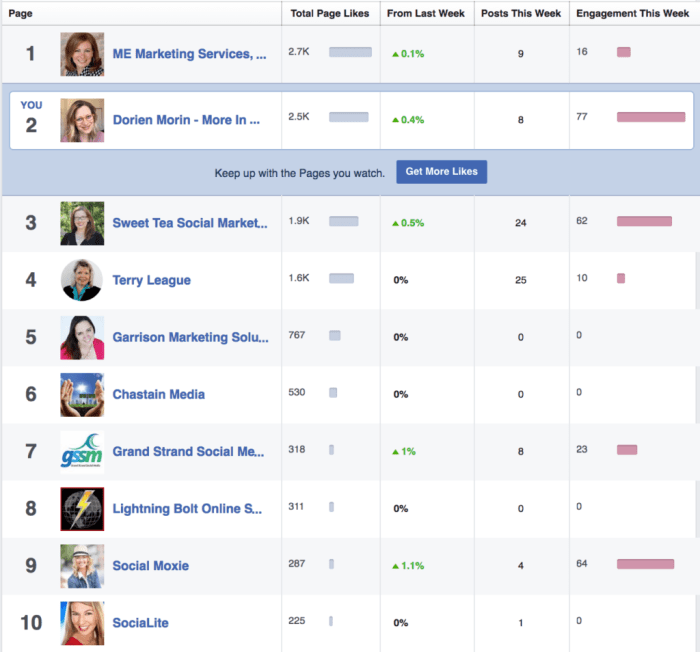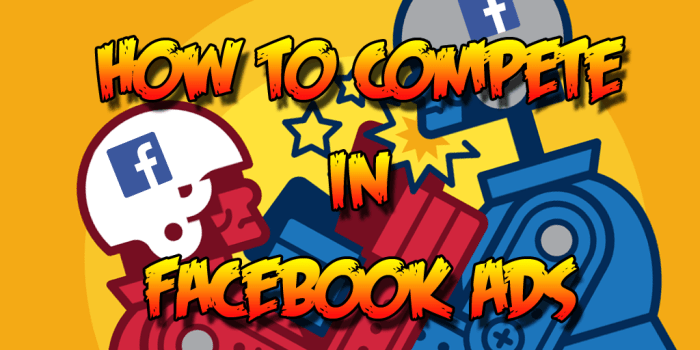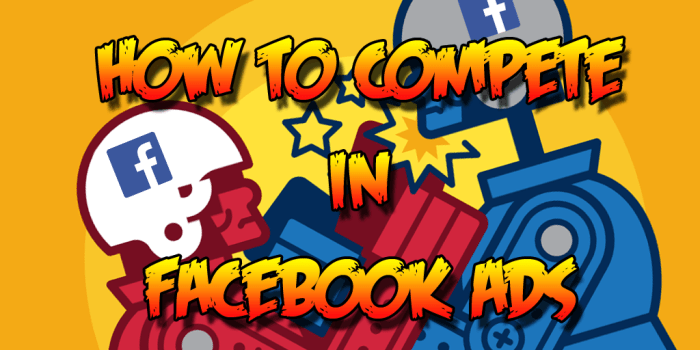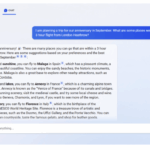Google fights against Facebook, a relentless battle for dominance in the digital world. This rivalry, fueled by a complex interplay of historical events, competitive strategies, and public scrutiny, has profoundly shaped the online landscape. From their initial rise to global behemoths to the current legal and regulatory pressures, this exploration delves into the intricate details of this ongoing struggle.
This in-depth look at the conflict will cover the historical context of their competition, highlighting key areas of direct competition, the legal and regulatory scrutiny both companies face, and the impact on users and society as a whole. We’ll also analyze the innovation and product development each company has employed, examining market share and financial performance data. Expect a comprehensive analysis, including tables to visualize the key information.
Historical Context of the Competition
The rivalry between Google and Facebook, two titans of the digital age, is a compelling narrative of innovation, adaptation, and relentless competition. Their rise to prominence intertwined, shaping the internet landscape as we know it. From humble beginnings to global behemoths, their trajectories have been intertwined, with Google focusing on search and information retrieval and Facebook on social connection.
This analysis delves into the historical context of their competition, exploring key events, milestones, and shifts in the technological landscape.The emergence of these companies mirrored a fundamental shift in how people interacted with information and each other. Both capitalized on the burgeoning internet, but their strategies and objectives diverged significantly, leading to a dynamic and often contentious relationship.
Google’s Ascent to Search Dominance
Google’s innovative PageRank algorithm, initially conceived in the late 1990s, revolutionized search engine technology. Its emphasis on relevance and user experience propelled it to the forefront of online search, quickly eclipsing competitors. This success laid the foundation for a vast empire encompassing advertising, cloud computing, and mobile operating systems. Google’s initial strategy focused on providing the most comprehensive and relevant search results, attracting both users and advertisers.
Facebook’s Social Network Revolution
Facebook, founded in 2004, initially focused on connecting college students. Its rapid expansion, driven by the ease of use and viral spread, created a global social network. Facebook’s user-centric approach, allowing for personalized interactions and sharing, was a stark contrast to Google’s more technical approach. It successfully harnessed the power of social connections, creating a platform for unprecedented communication and interaction.
Key Milestones and Strategies
| Google’s Actions | Facebook’s Responses | Impact |
|---|---|---|
| Development of PageRank and initial search dominance (late 1990s). | Limited initial focus, primarily on university networks. | Google established a strong foundation in search, attracting significant advertising revenue. |
| Expansion into advertising (early 2000s). | Development of targeted advertising based on user profiles. | Both companies recognized the potential of online advertising, leading to a competitive race to capture market share. |
| Introduction of Android mobile operating system (2008). | Development of Facebook mobile applications. | Shift towards mobile usage significantly influenced the rivalry, with both companies vying for mobile users. |
| Acquisition of YouTube (2006). | Focus on video sharing through Facebook. | Google’s acquisition of YouTube strengthened its position in the online video space, prompting Facebook to address the competition. |
| Development of Google Maps and other location-based services (2005-2010). | Facebook integrated location services for user interaction. | Competition emerged in the location-based services sector, further solidifying the rivalry. |
Technological Landscape Shifts
The rise of mobile devices and the increasing importance of user data significantly impacted the rivalry. Both companies adapted their strategies to cater to the evolving needs and expectations of mobile users. The emergence of social media platforms and the growth of user-generated content influenced the competitive landscape. The evolution of the mobile internet fundamentally altered the landscape, with both companies responding to this shift.
Key Areas of Competition
The digital landscape is fiercely contested, and Google and Facebook are titans locked in a perpetual struggle for dominance. Their rivalry isn’t simply about market share; it’s about defining the future of online interaction, information access, and advertising. This battle plays out across numerous fronts, impacting everything from search to social networking and mobile experiences.This intense competition hinges on their overlapping interests in advertising revenue, user engagement, and data collection.
Their strategies are intricate and ever-evolving, making predicting the outcome a complex endeavor. Understanding their competitive approaches in specific areas is key to comprehending the dynamics of this technological arms race.
Search and Information Access
Google’s core strength lies in its unparalleled search engine, meticulously curated algorithms, and vast index of web content. Its dominance in search allows Google to collect and analyze massive amounts of user data, feeding into its advertising network and other services. Facebook, while not directly competing with Google Search, is increasingly integrating search functionality into its platform, aiming to streamline user navigation and potentially capture a slice of this lucrative market.
The different approaches highlight the strategic significance of search as a cornerstone of online interaction.
Online Advertising
Both companies are behemoths in the online advertising market. Google’s vast advertising network, integrated with its search engine, allows for highly targeted and effective campaigns. Facebook, with its detailed user profiles and massive social network, provides an equally powerful platform for reaching specific demographics. Their strategies differ in their approach to user data and targeting. Google leans on -based searches, while Facebook utilizes detailed user profiles and social interactions.
Both companies use advanced algorithms to optimize ad placements and maximize revenue.
Mobile Operating Systems and Applications
Google’s Android operating system and Facebook’s mobile apps are deeply intertwined with user experiences. Android’s open-source nature and vast ecosystem of apps contrast with Facebook’s closed-app model, which emphasizes integration within its own platform. The rivalry extends to mobile operating systems, with Google’s Android ecosystem offering a wider range of devices and apps. Facebook’s focus is on fostering a cohesive mobile experience within its own social network, with integrated messaging, games, and other functionalities.
Social Networking
Facebook’s dominance in social networking is undisputed, boasting billions of active users. Google, though present with Google+, has not achieved similar success in this arena. The different strengths of each company are apparent in this area. Facebook’s social graph and user-generated content model are powerful, while Google’s emphasis on privacy and user control remains a focal point. The differing approaches demonstrate the nuanced strategies employed in capturing user engagement.
Google’s ongoing battle with Facebook is a fascinating case study in tech rivalry. It’s a complex web of accusations and counter-accusations, but streamlining your website’s navigation can be a surprisingly quick process. You can easily import and export navigation menus in just 30 minutes using a tool like easily import export navigation menus in 30 minutes , which can be helpful for keeping your website’s structure optimized, even amidst the tech giant’s power struggles.
Ultimately, understanding these competitive dynamics can help us better navigate the evolving digital landscape.
Product Comparison Table
| Feature | ||
|---|---|---|
| Core Product | Search Engine, Android OS, YouTube | Social Network, Messenger, Instagram |
| Target Audience | Broad, encompassing various demographics, from consumers to businesses | Broad, with a strong focus on younger demographics and mobile users |
| Market Penetration | High, dominating the search engine market | High, leading in social networking |
| Business Strategy | Focus on providing comprehensive tools for information access and advertising | Focus on building a cohesive social ecosystem and maximizing advertising revenue |
| Strengths | Extensive data analysis capabilities, robust search engine | Extensive user data, strong brand recognition |
| Weaknesses | Struggles with maintaining user trust in relation to data privacy | Concerns regarding user privacy and data security |
Legal and Regulatory Scrutiny
The digital giants, Facebook (now Meta) and Google, have faced intense scrutiny from legal and regulatory bodies worldwide. Their massive market share and pervasive influence in various sectors have raised concerns about potential anti-competitive practices and the need for regulatory intervention. This scrutiny has manifested in numerous legal challenges and investigations, reflecting a broader societal debate about the balance between innovation and market fairness.This examination delves into the specific legal battles fought by these tech titans, exploring the accusations, the outcomes, and the broader implications for the tech industry.
It highlights the evolving landscape of antitrust law and its application in the digital age.
Legal Challenges Related to Market Dominance
Concerns about Google and Facebook’s market dominance have been central to many legal challenges. The sheer size of their user bases and their control over key online services have led to allegations of anti-competitive behavior. These accusations often center around the idea that their power gives them the ability to stifle competition and harm consumers. For example, in some instances, their dominance was seen as preventing smaller businesses or newer companies from gaining a foothold in the market.
Regulatory Actions and Investigations
Numerous regulatory bodies have initiated investigations and taken actions against both companies. These investigations stem from concerns about anti-competitive practices, monopolistic tendencies, and potential abuse of market power. The objective of these investigations is to maintain a level playing field and ensure fair competition. The actions taken by regulators have ranged from formal inquiries to the imposition of fines and other remedies.
Examples of Lawsuits and Government Inquiries
Numerous lawsuits and government inquiries have targeted the business practices of both Google and Facebook. These actions often allege various forms of anti-competitive conduct, including favoring their own products or services over competitors, engaging in exclusionary practices, and leveraging their massive data holdings to unfairly advantage their own platforms. The sheer number of these actions underscores the depth and breadth of the regulatory scrutiny.
Table of Legal Battles
| Case | Accusations | Outcome |
|---|---|---|
| United States v. Google (ongoing) | Allegations of anti-competitive practices in the search engine market, potentially favoring its own services, including its shopping and Maps features, over those of competitors. | Ongoing litigation; potential remedies are still being debated and decided. |
| European Commission v. Google (2018) | Allegations of abusing its dominant position in the Android mobile operating system market by forcing manufacturers to pre-install Google apps and services. | Google was ordered to pay a significant fine and modify its practices to ensure fair competition. |
| FTC v. Facebook (ongoing) | Allegations of anti-competitive behavior in the social media market, including potential abuse of market dominance and leveraging data holdings to stifle competition. | Ongoing litigation; potential remedies are still being debated and decided. |
Public Perception and Criticism: Google Fights Against Facebook
The rivalry between Google and Facebook has sparked significant public debate, often characterized by criticism and concerns about their power and influence. Public perception is shaped by a complex interplay of factors, including the companies’ actions, media coverage, and individual experiences. This section delves into the multifaceted nature of this public perception, exploring the arguments and counterarguments surrounding their impact on the digital landscape and society.Public opinion regarding Google and Facebook is often polarized.
Some view them as indispensable tools that have revolutionized communication and information access, while others see them as monopolistic entities with detrimental effects on competition and individual privacy. The intensity of this debate reflects the profound impact these companies have on modern life.
Criticisms of Google
Public criticism of Google frequently centers on concerns about its dominance in search, its data collection practices, and its influence on the dissemination of information. Google’s search algorithm has been criticized for potentially biasing results, thereby affecting the availability and accessibility of certain viewpoints. The vast amount of data Google collects about users has raised privacy concerns, as has the company’s control over various online platforms.
Criticisms of Facebook
Public criticism of Facebook predominantly focuses on issues of privacy, misinformation, and the spread of harmful content. The platform’s role in the dissemination of false information and its potential impact on democratic processes have been significant concerns. Facebook’s data collection practices and the potential for manipulation have also drawn substantial criticism.
Public Sentiment and Media Coverage
Media coverage plays a pivotal role in shaping public sentiment towards both companies. News articles, documentaries, and social media discussions often highlight concerns about their power, potential abuses, and the impact on individuals and society. The prominence of these issues in the media has amplified public discourse and shaped opinions, often fueling both positive and negative perspectives.
Summary of Public Opinion and Criticisms
| Area of Concern | Criticisms of Google | Criticisms of Facebook |
|---|---|---|
| Dominance and Competition | Google’s monopolistic tendencies in search and other online services, stifling innovation and competition in related sectors. | Facebook’s control over social media platforms, potentially hindering the development of alternative platforms and limiting diverse viewpoints. |
| Data Collection and Privacy | Extensive data collection practices regarding user behavior and interests, raising concerns about privacy violations and potential misuse of information. | Collection of user data and potential for misuse in targeted advertising, raising privacy concerns and the potential for manipulation. |
| Spread of Misinformation | Potential for Google’s search algorithm to amplify or promote biased or misleading information. | Facebook’s role in facilitating the spread of misinformation and harmful content, potentially undermining democratic processes and public discourse. |
| Influence on Information Dissemination | Google’s role as a gatekeeper to information, potentially impacting the reach and visibility of diverse perspectives. | Facebook’s role in shaping public discourse and potentially limiting access to a wide range of viewpoints. |
Innovation and Product Development
The relentless competition between Google and Facebook has spurred a continuous cycle of innovation, driving advancements in search, social networking, and advertising technologies. Both companies have invested heavily in research and development, constantly striving to improve user experiences and gain market share. This dynamic has profoundly shaped the digital landscape, impacting how we interact, communicate, and consume information.The innovations introduced by these tech giants have often been intertwined, influencing each other and responding to the evolving needs and expectations of users.
The need to stay ahead in the face of fierce competition has fueled a rapid pace of product development, pushing the boundaries of what’s possible in the digital sphere. This has also necessitated a proactive approach to adapting to shifting user preferences and emerging technological trends.
Google’s ongoing battle with Facebook is a fascinating case study in the ever-evolving digital landscape. To navigate this competitive space effectively, understanding the top 10 powerful techniques for a successful mobile SEO campaign here is crucial. Ultimately, mastering these strategies can give businesses a significant edge in the fight for online visibility, even against a giant like Facebook.
Google’s Innovations
Google’s innovations have often centered on improving search functionality, leveraging machine learning, and expanding its ecosystem of products. From advanced search algorithms to AI-powered translation tools, Google has continuously strived to refine its core offerings. Google Maps, for instance, evolved from a basic mapping service to a comprehensive navigation platform incorporating real-time traffic information, street views, and local business listings.
This integration demonstrates a commitment to a seamless and informative user experience. The development of Android, a mobile operating system, also significantly impacted the mobile landscape, providing a platform for countless applications and shaping the way we interact with our devices. Moreover, Google’s foray into cloud computing with Google Cloud Platform (GCP) has allowed businesses to leverage its infrastructure and technologies for their own development.
Facebook’s Innovations, Google fights against facebook
Facebook’s innovations have focused on enhancing social interaction, enabling diverse communication methods, and expanding its advertising capabilities. The company’s development of sophisticated algorithms for content personalization, news feed curation, and targeted advertising has been crucial to its success. Facebook’s evolution from a simple social networking platform to a multifaceted ecosystem including Instagram and WhatsApp showcases its adaptability and commitment to expanding its reach and influence.
The introduction of new features like virtual reality (VR) and augmented reality (AR) experiences reflects an attempt to cater to the changing preferences of users seeking immersive experiences. Facebook’s growth into diverse communication methods, including messaging and video-calling platforms, exemplifies its ambition to stay relevant and adapt to evolving communication trends.
Comparison of Product Development Cycles
Google’s product development often follows a more structured, phased approach, focusing on iterative improvements and incorporating feedback from a vast user base. This is reflected in the continuous refinement of its search algorithms and the constant updates to its suite of applications. Facebook, on the other hand, frequently introduces new features and products simultaneously, fostering a more rapid and dynamic development cycle, responding more swiftly to market trends.
This approach allows for quicker adaptation to user preferences and allows for exploration of innovative concepts.
Adaptation to User Preferences and Technology
Both companies have demonstrated an ability to adapt to changes in user preferences and technology. Google’s constant adjustments to search algorithms and incorporation of voice search exemplify its responsiveness to evolving user needs. Facebook’s development of Instagram and WhatsApp highlights its willingness to embrace new platforms and communication styles. Their commitment to understanding and anticipating user behavior allows them to remain at the forefront of innovation.
Key Products and Services
| Company | Product/Service | Innovative Features |
|---|---|---|
| Google Search | Advanced algorithms, machine learning, voice search, image search | |
| Google Maps | Real-time traffic, street view, local business listings, navigation | |
| Android | Mobile operating system, platform for apps, open-source model | |
| Personalized news feed, targeted advertising, social interaction | ||
| Visual-centric social media platform, Stories, Reels | ||
| Cross-platform messaging, voice and video calls |
Market Share and Financial Performance
The relentless competition between Google and Facebook has profoundly shaped their respective market positions and financial trajectories. Understanding the dynamics of market share and financial performance is crucial to comprehending the ongoing battle for dominance in the digital landscape. This analysis delves into the specific metrics that define success and failure in this rivalry, illustrating how strategic adjustments have been driven by financial results.The financial performance of both companies reflects the competitive landscape in which they operate.
Their strategies, investments, and market responses are constantly evaluated and refined based on the feedback from the financial markets. Strong financial performance often translates into greater investment capacity, allowing for more aggressive product development and expansion into new markets. Conversely, poor financial results can force companies to reassess their strategies, potentially leading to cost-cutting measures or pivoting towards more profitable areas.
Google’s Market Dominance
Google’s dominance in search, advertising, and other online services has been consistently reflected in its impressive market share figures. Their search engine holds a near-unassailable position, consistently commanding the largest market share in the global search engine market. This dominance fuels significant revenue streams from advertising, making Google a behemoth in the digital advertising ecosystem.
Facebook’s Social Media Influence
Facebook, despite facing challenges and controversies, maintains a substantial market share in the social media sector. Its vast user base, while experiencing some declines in certain demographics, still translates into a robust advertising revenue stream, supporting Facebook’s significant financial performance. However, the social media landscape is highly competitive, and Facebook must continuously innovate to maintain its leading position.
Key Financial Metrics
Several key financial metrics illustrate the success or failure of strategies employed by Google and Facebook. Revenue growth, profit margins, user engagement metrics, and cost structures are critical indicators. The correlation between market share gains, user engagement, and financial performance is a complex relationship, often dependent on the evolving market dynamics.
Historical Market Share Trends
| Year | Google Search Market Share (%) | Facebook Monthly Active Users (Millions) |
|---|---|---|
| 2018 | 90 | 2,200 |
| 2019 | 88 | 2,350 |
| 2020 | 92 | 2,500 |
| 2021 | 91 | 2,650 |
| 2022 | 90 | 2,700 |
The table above presents a simplified representation of historical market share trends. Actual data may vary slightly depending on the specific data source and methodology used. It is important to consult reputable sources for more detailed and comprehensive information. These data points provide a visual representation of the historical market share trends for Google and Facebook in their respective domains.
Google’s ongoing battle with Facebook highlights the intense competition in the digital sphere. This struggle underscores the vital role of digital marketing in today’s world, particularly in the age of Twitter-fueled trends. Understanding how to leverage digital platforms like Twitter effectively is crucial for any business navigating the complexities of modern marketing; this is explored further in the importance of digital marketing today in the twitter age.
Ultimately, Google’s fight with Facebook is a reflection of the broader digital marketing landscape and the need to stay ahead of the curve in this ever-evolving online environment.
These trends provide a valuable insight into the ongoing competitive landscape.
Impact on Users and Society

The relentless competition between Google and Facebook has profoundly reshaped the digital landscape, impacting users, consumers, and society in multifaceted ways. This rivalry has fostered innovation in search, social networking, and online advertising, but also raised critical concerns regarding privacy, information control, and the spread of misinformation. Understanding the dual nature of this competition is essential to evaluating its overall impact.This competition has profoundly altered the online experience, pushing both companies to constantly refine and improve their offerings.
The constant pressure to innovate has driven advancements in algorithms, user interfaces, and data analysis, ultimately influencing how we interact with the internet and access information. The battle for market dominance has also had a significant impact on how users perceive and use technology.
Overall Impact on Users
The competition between Google and Facebook has shaped the online experience in numerous ways, including the availability of information and the methods of communication. Users benefit from increased choices, features, and functionalities, but also face challenges related to data privacy, targeted advertising, and the spread of misinformation.
Privacy Concerns
The relentless pursuit of data by both Google and Facebook has raised significant privacy concerns. Their collection and analysis of user data have led to discussions about the extent of personal information that companies can legitimately access and use. The potential for misuse and exploitation of this data has fueled public debate and prompted calls for stricter regulations.
The collection and use of data for targeted advertising has become a central point of contention, raising concerns about informed consent and the potential for manipulation.
Information Dissemination
The rivalry has significantly influenced the dissemination of information online. Google’s search engine, with its vast index of web pages, has become a primary source for information retrieval. Facebook, with its social network, has become a platform for both the dissemination of information and the spread of misinformation. The ability to rapidly disseminate information through these platforms, while beneficial for news and communication, has also created opportunities for the spread of inaccurate or misleading content.
This competition has also shaped the news consumption habits of users.
Political Discourse
The competition has had a noticeable impact on political discourse, both online and offline. The platforms have become significant tools for political campaigning and mobilization, while simultaneously serving as arenas for political debate and discussion. The algorithms employed by these companies have been scrutinized for their potential to influence election outcomes and shape public opinion. The potential for bias in these algorithms and the ability to filter information has led to concern about the integrity of political discourse.
Impact on Society as a Whole
| Aspect of Society | Google’s Influence (Pros & Cons) | Facebook’s Influence (Pros & Cons) |
|---|---|---|
| Economic Growth | Facilitates global commerce, creating new markets and opportunities. Potentially disrupts traditional businesses. |
Facilitates communication and collaboration across borders. Potential for monopolies to stifle competition. |
| Information Access | Provides easy access to vast amounts of information. Potential for information overload and misinformation. |
Provides platforms for communication and community building. Potential for echo chambers and misinformation. |
| Social Interaction | Connects people across geographical boundaries. Potential for isolation and detachment from real-life interactions. |
Facilitates communication and social interaction. Potential for social division and cyberbullying. |
| Political Discourse | Influences political debates, potentially promoting transparency. Potential for manipulation of public opinion. |
Provides a platform for political expression. Potential for the spread of misinformation and disinformation. |
Ending Remarks

In conclusion, the Google vs. Facebook battle is a fascinating case study in technological rivalry. The strategies employed, the legal battles fought, and the public perception of these giants have significantly shaped the digital age. Ultimately, this ongoing conflict continues to influence the way we interact with the online world, raising critical questions about the future of technology and its impact on society.
Stay tuned for further analyses of this dynamic and ever-evolving narrative.






